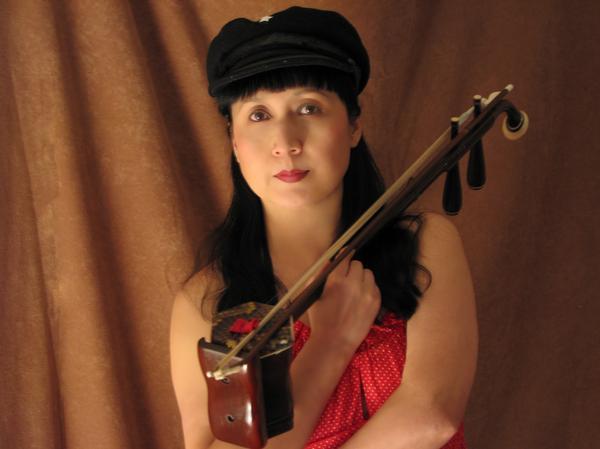Yang Ying’s Jazzy Take on Chinese Folk Music
Yang Ying (Photo: Yang Ying/MySpace)
Yang Ying grew up in the 1960s and 1970s during China’s Cultural Revolution. It was a time when people deemed enemies of communism were forced to work as manual laborers.
That happened to Yang’s father, who ended up working in a coal mine.
He thought his daughter might escape that fate if he taught her to play an instrument-well enough to enter an elite music academy.
And so she learned to play the traditional two-string erhu. She studied under her father’s tutelage for several hours a day. Because the family’s apartment was so small, and the walls so thin, she would practice the erhu in the park.
The hard work paid off. Yang won a national competition playing a famous piece of music called River of Tears.
Her success led to a place at a music conservatory in Beijing. From there she became a soloist with the Chinese National Song and Dance Ensemble. She performed for countless foreign dignitaries on their visits to China, including American presidents.
“I played for Ford, Carter and for Nixon,” Yang says. “I remember three. I probably performed for more.”
More important to Yang though, were her tours of China, where she learned about the country’s regional differences, the music and the dialects. The many dialects of Chinese “really had an effect on the music.”
But while Yang was being exposed to new sounds, she still had to perform the same old stuff.
As an erhu soloist with a renowned national ensemble, “you probably only play two, three, four repertoires your whole life.” Yang says it tired her out. “And I really wanted to do something new.”
It was the late 1980s. China was opening up. Yang started going to rock concerts put on by the US Embassy. Clubs were opening, bands were forming. She taught herself the bass guitar. She said it was like learning a new language.
Yang founded Cobra, China’s first-ever all female rock band. She knew that she was breaking several taboos at once, and that many people would disapprove.
Yang says her father was “not very happy.” And other classical musicians, “thought I was crazy.”
Yang tried to infuse some of Cobra’s songs with traditional elements. She even re-imagined a traditional folk song as a rock anthem.
That spirit of anything-goes fusion ultimately moved Yang in another direction. She emigrated to the United States, and began studying jazz. She recognized common elements between jazz and Chinese folk music. Both rely on improvisation, and make the instrument sound “as if it’s singing, like the human voice.”
She started playing the erhu with an American jazz group.
Today, that has brought her back to China, where she and her group are performing at the Beijing Nine Gates Jazz Festival.
